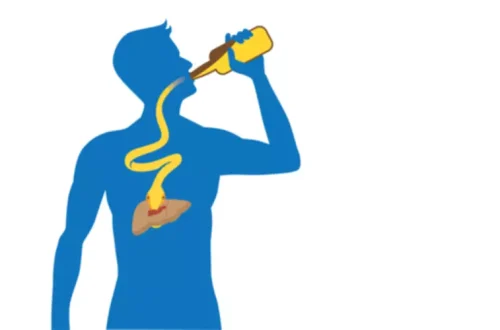
Therapy focuses on providing the individual the necessary skills to prevent a lapse from escalating into a relapse31. Rationalization, meanwhile, is the brain’s way of making excuses for continued substance use. “I need it to relax after a stressful day,” or “It helps me be more social,” are common refrains. These justifications serve to ease the cognitive dissonance, allowing the addicted individual to continue their behavior without confronting the stark reality of their situation. When cognitive dissonance and addiction collide, it’s like adding fuel to an already raging fire. The addict’s mind becomes a battleground where logic and desire wage a never-ending war.

What is the difference between cognitive dissonance theory and balance theory?
Female participants were informed they would be helping out in a study funded by several manufacturers. Participants were also told that they would receive one of the products at the end of the experiment to compensate for their time and effort. In an intriguing experiment, Festinger and Carlsmith (1959) asked participants to perform a series of dull tasks (such as turning pegs in a peg board for an hour). As you can imagine, participant’s attitudes toward this task were highly negative. Considering cognitive dissonance and intergenerational trauma may help avoid one-sided responses to the tragedy in the Middle East. We’re born inconsistent and tend to rationalize away our cognitive dissonance.
Addiction and Cognition

The key is to notice when the pattern of delusional thinking starts to exacerbate and to challenge the feelings and thoughts to prevent relapse from occurring. Set healthy boundaries from the beginning and reinstate them if someone crosses a line. By being assertive about your values, you can minimize continued conflict from cognitive dissonance addiction the start but also empower yourself to hold that space for your needs. “You’re more likely to feel guilty if you’re doing something that goes against your values,” notes Dr. Prewitt. Hypocrisy involves a contradiction between a person’s supposed principles, beliefs, or character and who they really are or how they behave.
DRUGS OF ABUSE AND MENTAL ILLNESS
Understanding the influence of an individual’s genetic background on the manifestation of symptoms is a critical area for future research, holding the promise of informing more effective treatments that can be tailored to the individual’s genotype. Finally, understanding how prenatal exposure to drugs of abuse changes neural development should be a high priority, as prenatal exposure increases the new generation’s susceptibility to addiction and other problems. Furthermore, emotional and cognitive conflicts arise in addiction due to cognitive dissonance.
- According to the personality typology theory, different people may exhibit different personality types [67, 68].
- In that case, it can be declared that it has a significant level within a certain error, and the critical value is usually 1.96 (5% significance level), 2.57 (1% significance level), and 3.29 (0.1% significance level).
- Cognitive behavioural therapies are empirically supported interventions in the management of addictive behaviours.
- This study, which is grounded in the theoretical framework of “Cognition-Emotion-Behavior intention,” develops an influencing mechanism model based on cognitive dissonance and self-efficacy.
- Self-efficacy has a moderating effect on the relationship between cognitive dissonance and the discontinuous usage intention of the pan-entertainment mobile live broadcast platform users.
An alcoholic may know the dangers of drinking but likely tell themselves, “It’s just one drink.” Someone spiraling into addiction knows that what they’re doing is harmful. However, they may still choose to abuse these substances because they block unwanted thoughts and feelings. These ideas will shape how they perceive and judge the world, and it would not be possible to live without them and still be able to function. Sometimes the individual can hold beliefs and opinions that are contradictory or that contradicts their behaviour. For example, a person may believe that drinking too much alcohol is bad, but they still continue to indulge in this behaviour.
- This study helps us understand how Festinger’s classic theory of cognitive dissonance can be used in a practical way to help people struggling with difficult emotions and behaviors.
- Adolescent exposures to other substances of abuse, such as alcohol, cannabis, and MDMA, also cause persistent disruptions of cognition (Brown et al., 2000; O’Shea, McGregor, and Mallet, 2006; Piper and Meyer, 2004; Stiglick and Kalant, 1982).
- He might ease this feeling by telling himself that the health warning is exaggerated or, more productively, by deciding to take action to change his behavior.
- When we do this by thinking up positives for our choice and negatives for the other option, it’s called the “spreading of alternatives.” Your brain feels better when you can align your behavior with your values.
Based on this, the present study suggests that fear of being without a mobile phone may be a mediating variable between Type D personality and smartphone addiction. This study has several limitations that should be considered when interpreting the results. First, other potential factors contributing to discontinuous usage intentions among pan-entertainment mobile live broadcast platform users were not examined. These factors https://ecosoberhouse.com/ could include the quality of content, the reliability of the platform, and the level of user engagement. Future research could investigate these factors to gain a more comprehensive understanding of discontinuous usage intentions. Second, the study used a cross-sectional survey design with a single source of data, which limits the ability to establish causality and the changes in discontinuous usage intentions over time.
- The key is to notice when the pattern of delusional thinking starts to exacerbate and to challenge the feelings and thoughts to prevent relapse from occurring.
- The drug-exposed children also exhibited poorer long-term spatial memory and visual/motor integration.
- Warren is a Licensed Master Social Worker, who specializes in substance abuse and mental health treatment.
